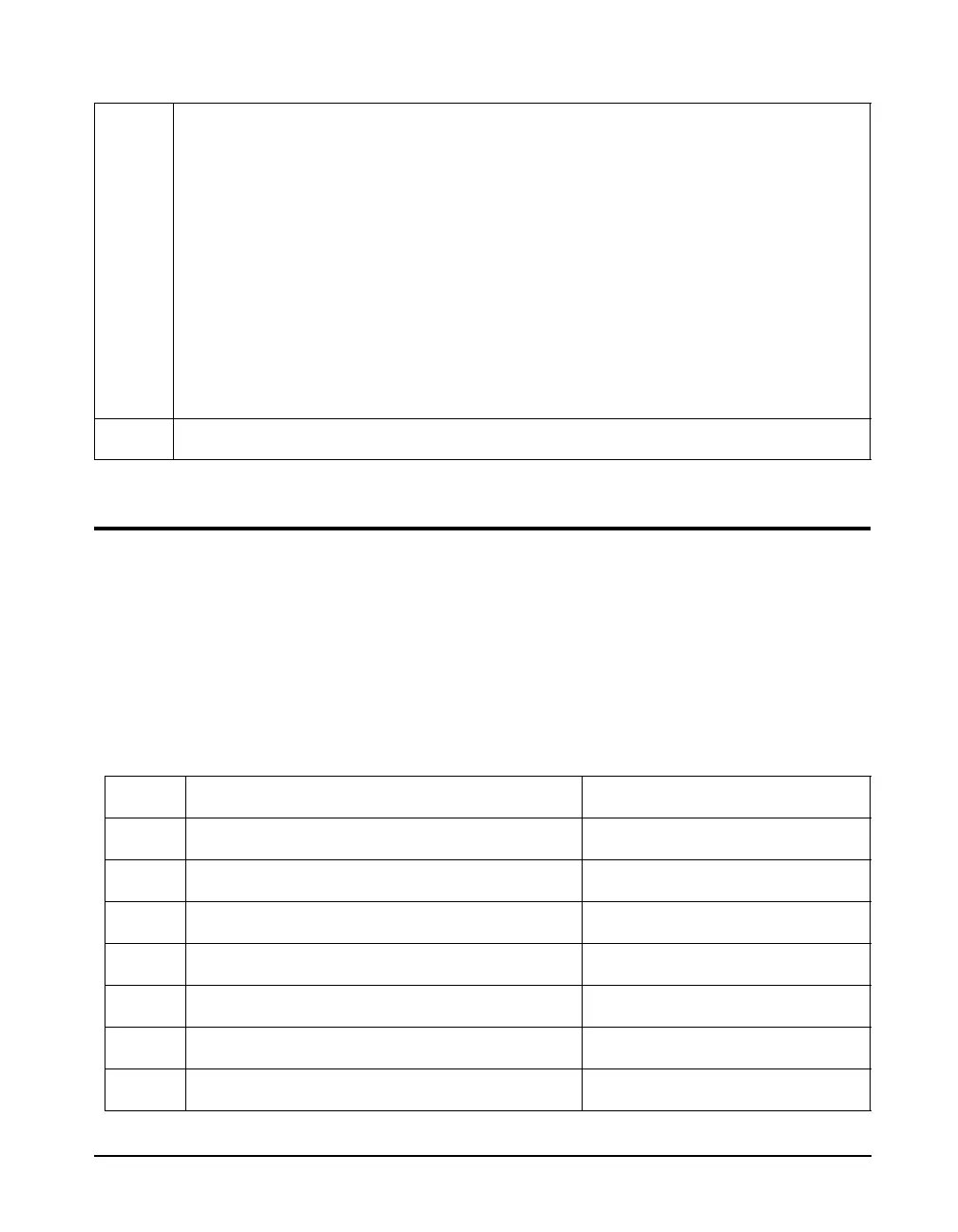9/29/09 A-79
Data File Commands
The &F I/O command reads out
information about stored data or
FILES and has facilities to store and
recall files. These work in
conjunction with Advance, Backup
and Find to navigate through the File
records of this history (just like
Intervals).
^ Read Excd T.H. Buffer. This command is used to create an SPL vs. Time plot that is time
cohesive. Resolution is, by default, 1 dB with one byte/sample being sent. Each byte
has 32 added to it to avoid confusion with ASCII control codes, subtract 32 to use. Only
the samples taken since the last read are sent, up to the buffer size of 128 samples. The
time of day is appended to the end of the string to permit time stamping of the SPL
graph. A delimiter byte (ASCII 212 in decimal, which is the letter “T” with 128 added
to it) precedes the time string.
Full resolution including the fractional part of the level is sent if enabled by the M9,1
command. With full resolution, 2 bytes per level are sent. The first byte being the inte-
ger portion, which is the same as described above. The second byte is the fractional
portion. it is converted by subtracting 32 from the byte and then dividing it by 128 to
make it a fraction. The fractional part is then added to the integer part to form the level.
@ Enable IO Error Check Scheme. S205,0F or 2 <CR> in a row to disable.
&F1 FILE NAME cccccccc
&F2 FILE EXTENSION (InstType) ccc
&F3 FILE DESCRIPTION cccccccccccccccccccccccccccccc
&F4 CURRENT START TIME ddmmyy hh:mm:ss
&F5 CURRENT END TIME ddmmyy hh:mm:ss
&F6 OVERALL START TIME ddmmyy hh:mm:ss
&F7 OVERALL END TIME ddmmyy hh:mm:ss
&F8 SIZE OF FILE nnnnnnn
